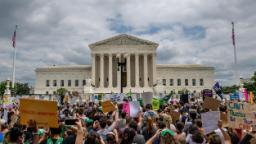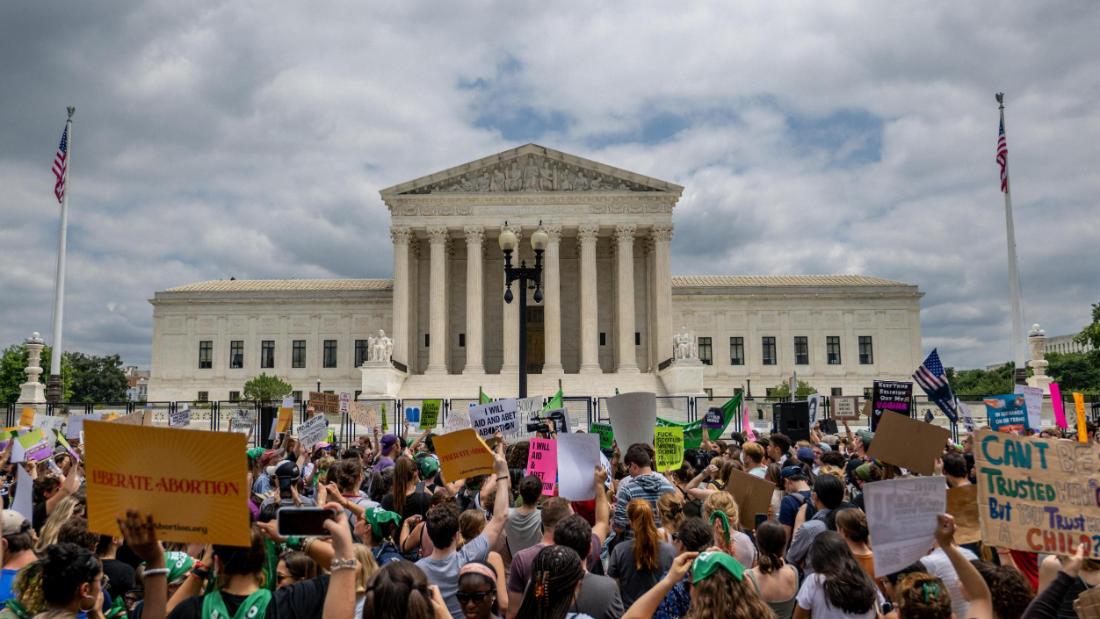
In the weeks since the Supreme Court’s ruling, we’ve seen a first wave of polling trying to gauge where voters’ priorities now lie, and what that might mean for the upcoming elections. Early results suggest that concerns about abortion and women’s rights have surged, with Democrats’ attention particularly drawn to the issue. At the same time, they find the majority of voters’ focus has so far remained elsewhere.
What voters care about, and how those priorities influence their decisions, is too complicated to be fully captured in a single poll question. The degree to which voters personally care about an issue is different from the question of whether that issue will be decisive in an election, either by motivating someone to vote when they wouldn’t have otherwise, or by convincing them to vote for a different candidate than they would have otherwise. But comparing the answers to different questions can provide a broader, more nuanced, picture.
Here’s a look at several ways pollsters ask about election issues, what they can — and can’t — tell us about public opinion, and what some early data might suggest about how the aftermath of the Roe decision has played out so far.
THE QUESTION: Issue importance (for instance “How important is this issue to you?” or “How important is this issue to your vote?”)
The question can also expose meaningful divides or trends on an issue, revealing, for instance, that people who support a policy care much more about it than those who oppose it do, or that the share of people who care deeply about a topic has risen sharply in a short period of time.
As Gallup’s Lydia Saad and Megan Brenan noted, “The importance of gun policy and abortion to vote choice are by far the highest on record and may now be even higher given the events that transpired after the poll was completed.”
THE QUESTION: Top issue (for instance “Which of these issues are most important to you?” or “Which issues will be most important to your vote?”)
What it can tell us: Forcing people to choose which issues are at the top of their minds might be something of an artificial constraint — plenty of people care about multiple facets of American politics — but it also helps to give a sharper sense of where voters’ priorities lie at the time of the survey, and how they vary between blocs. Responses to this question also frequently reflect which issues campaigns are choosing to prioritize, and the extent to which those efforts are resonating with the public.
Even fewer voters, however, call abortion their No. 1 concern. In the New York Times/Siena poll, just 5% of registered voters name abortion or women’s rights as the single most important problem facing the country, ranking it behind the economy (20%), inflation (15%), democracy and political divisions (11%) and gun policies (10%).
THE QUESTION: Litmus test (for instance “Thinking about how this issue might affect your vote for major offices, would you only vote for a candidate who shares your views, consider a candidate’s position as just one of many important factors when voting, or not see it as a major issue?”)
It’s worth taking a closer look at which Republicans and Democrats now consider abortion a pivotal issue. In data provided by PRRI, the share of Americans viewing abortion as a litmus test was highest among those whose views were aligned with their party: 46% of Democrats who generally favor legal abortion and 39% among Republicans who generally oppose it, compared with just 16% among the Republican supporters of abortion rights. (There are too few anti-abortion Democrats to examine those numbers separately in the survey.) Among political independents, similar shares of abortion rights supporters (26%) and opponents (23%) say they’d only vote for a candidate who shared their views on the issue.
THE QUESTION: Relative likelihood of voting (for instance “Does the news about this issue make you more or less likely to vote in the upcoming election?”)
What it tells us: While the litmus test question aims to capture how likely people are to base their vote solely on a particular issue, this question attempts to gauge how the latest news about an issue might affect people’s likelihood of turning out to vote at all.
Unfortunately, it’s not a simple or intuitive question. To answer it literally, respondents would have to work through a series of complicated mental math: remembering how likely they’d previously thought they were to vote, considering the impact of the news on their motivation level, and calculating the relative difference (“before, there was only a 76% chance that I’d vote, but now it’s 83% at least!”)
That disparity is a good reason to take those answers with a grain of salt. But it is worth noting that in both questions, Democrats were significantly likelier than Republicans to say the issue increased their chances of voting. That doesn’t necessarily predict much about turnout, but it’s yet another sign that this issue is one that’s resonating far more strongly among Democrats.

